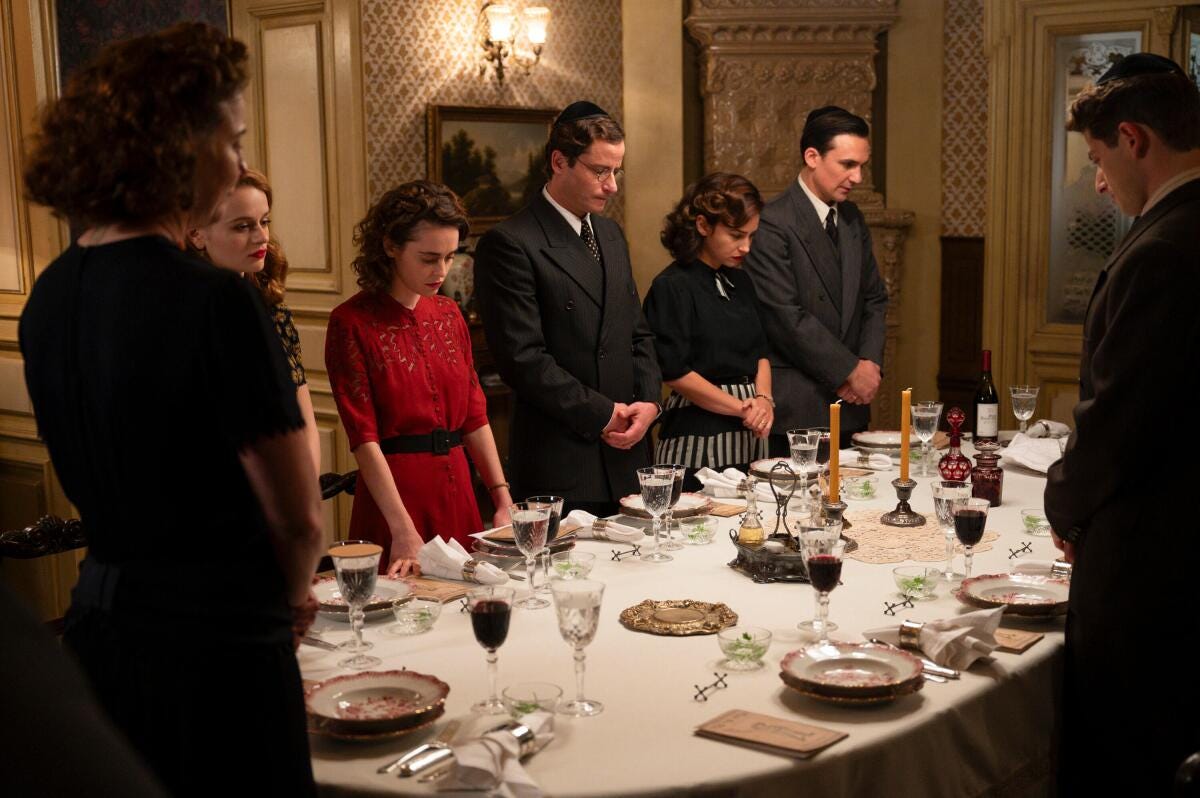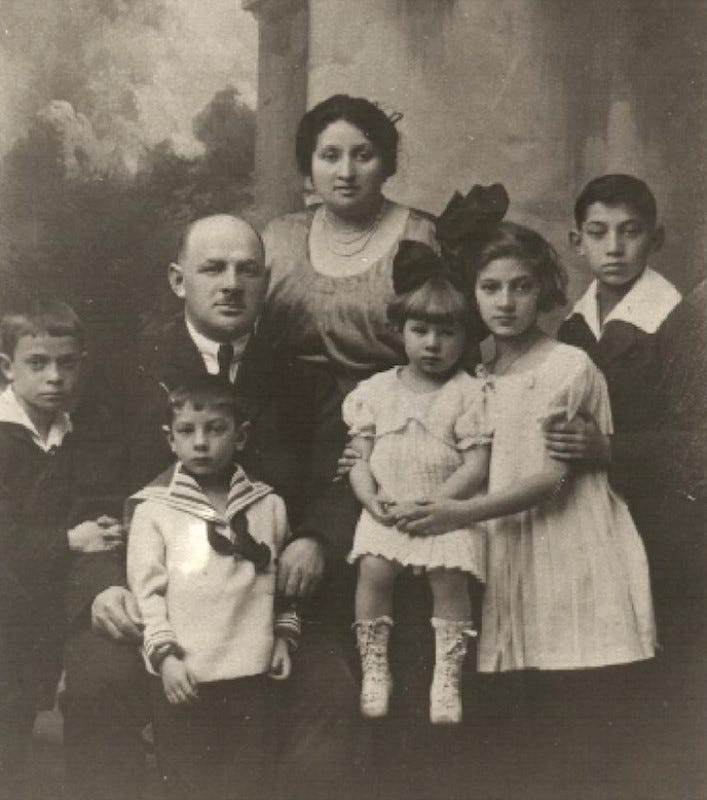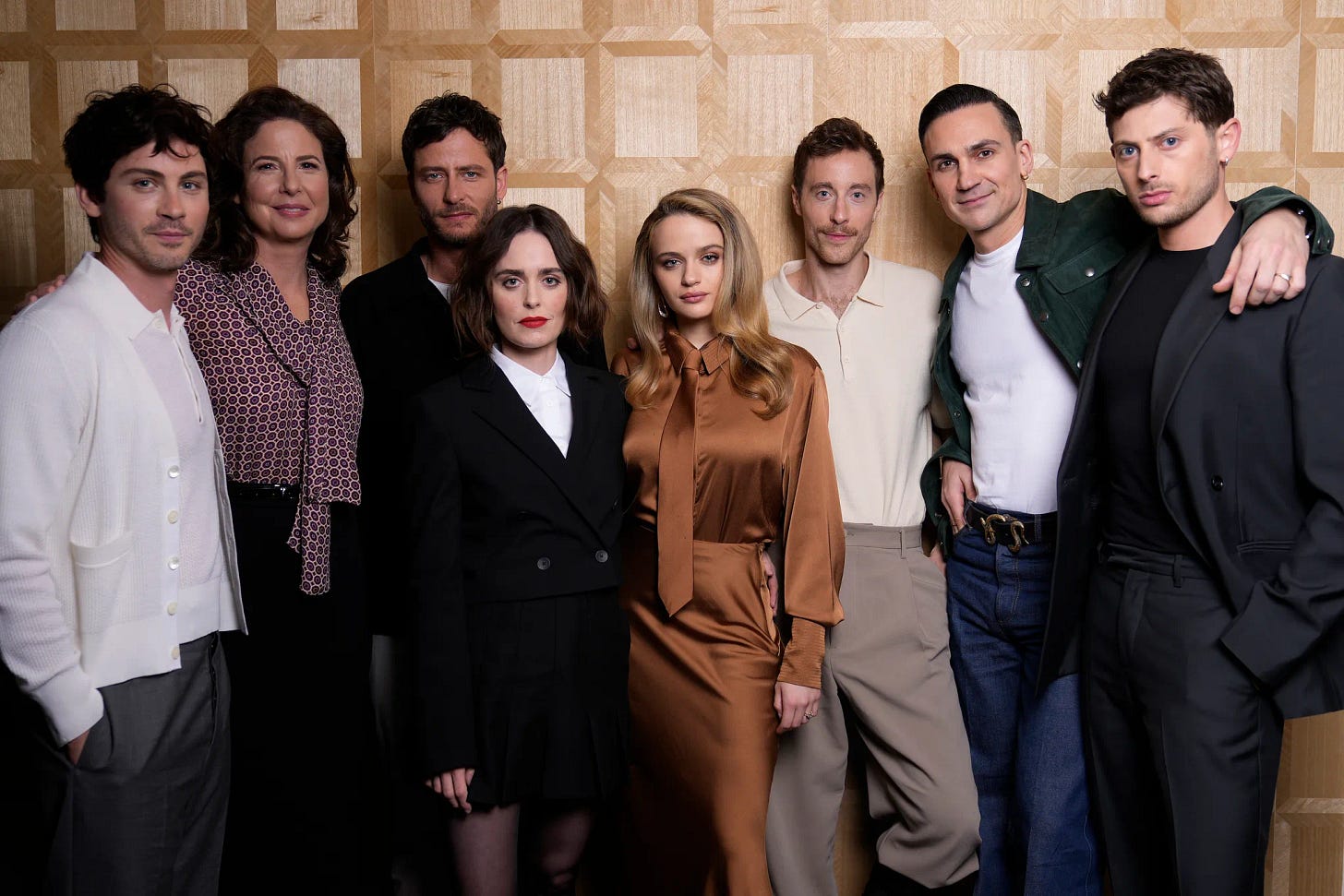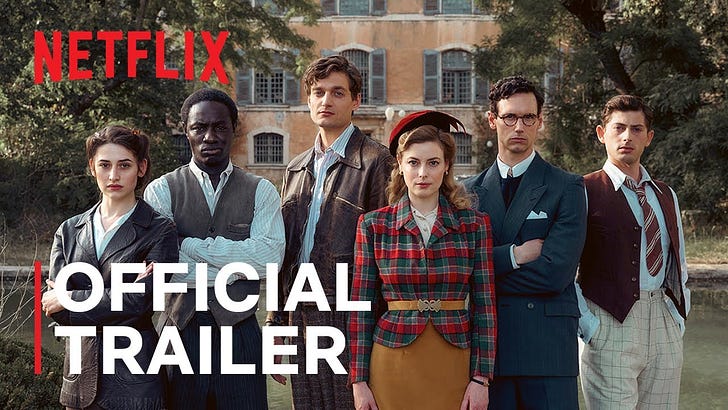"We Were the Lucky Ones" Tells a Hopeful Tale in a Grim Time
A Polish family's resilience and their Phoenix-like emergence from the ashes of the Holocaust strikes a chord
“Months later, in a different world, Nechuma will look back on this evening, the last Passover when they were nearly all together, and wish with every cell in her body that she could relive it. She will remember the familiar smell of the gefilte, the chink of silver on porcelain, the taste of parsley, briny, and bitter on her tongue. She will long for the touch of Felicia's baby-soft skin, the weight of Jakob's hand on hers beneath the table, the wine-induced warmth in the pit of her belly that begged her to believe that everything might actually turn out all right in the end. She will remember how happy Halina had looked at the piano after their meal, how they had danced together, how they all spoke of missing Addy, assuring each other that he'd be home soon. She will replay it all, over and over again, every beautiful moment of it, and savor it, like the last perfect klapsa pears of the season.”
In We Were the Lucky Ones on Hulu [trailer], based on the memoir of the same name by Georgia Hunter, we are subject to a story for the ages that is a powerful reminder of perseverance's role in the face of extreme adversity. In it, we are introduced to the Kurc (pronounced Kur-tz) household, a well-off Polish Jewish family living in Radom, a city in east-central Poland, 60 kilometers south of Warsaw, that before 1939 boasted a population of 30,000 Jews (1/3rd of the city’s population), and by the end of WW2, that number diminished to 1% of its original number.
The quote referenced above is from a time when the situation in Radom was becoming direr for Jews, but Jews could still live in their own homes, keep their jobs, and were not yet forced into work camps, ghettos, and eventually death camps. The Kurc family’s attempt to continue with their tradition of celebrating Passover, a holiday that celebrates the triumph of resilience in the face of persecution and slavery, holds much symbolic meaning in this scene, and by extension, the entire series. It wasn't until 1946, on the other side of the globe, that they would finally reunite and continue their cherished tradition.

This quote also gives us a glimpse into the life of a middle-class European family in the 1st half of the 20th century that could be any other family, save the food references (gefilte fish), the holiday (Passover), and perhaps some of the names. In other words, the Kurc family were Jews but they also considered themselves Poles, good neighbors, and people of the community. Poland was their home. To conceive of leaving was a hardship.
History tells us that those Jews who evaded the Nazis by leaving Eastern Europe before the Nazis invaded were wise and lucky. After all, hindsight always favors the prescient, but what of those who stayed behind and were left to sort out survival in an impossible situation? This frames the struggle at the root of the Kurc family saga and the central question of the 8-episode series.
The ingenuity and resolve of this family in working to keep each other alive is inspiring. Admittedly if its outcome would have been different (translation: any of them died), I don’t know that I could have watched this. As it is, the watch is not for the faint-hearted, so prepare to get out your box of tissues in the final episode. I can attest that it’s well worth the time and emotions.

Director and Executive Producer Thomas Kail (Hamilton, In the Heights) has been close friends with Georgia Hunter, author of We Were the Lucky Ones and granddaughter of Addy Kurc, since 1999. As Georgia set out to research and pen her family’s story, Kail also started to explore his roots, per this Kveller article. This union eventually led to this series, which stars an international cast spanning England, Israel, and the U.S.
Every performance here is noteworthy from Joey King (The Act, The Kissing Booth series), as Halina, who was the first actor to be cast, to Logan Lerman (Percy Jackson & The Olympians, Jack & Bobby) as Addy. The Israeli castings are brilliant. Hadas Yaron as Mila, Amit Rahav as Jakob, Michael Aloni (The Beauty Queen of Jerusalem, Shtizel) as Selim, Mila’s husband whom she’s separated from for the entire war as he’s missing and presumed to be dead, Moran Rosenblatt as Herta, Genek’s wife, and last but certainly not least in the Israel version of Hollywood standards, Lior Ashkenazi as the patriarch, Sol.
In Summary
If, like me, you have any ambivalence about watching this, rather than shying away, it's worth taking the plunge to gain a deeper understanding and appreciation for the fraught complexities of a Jewish family’s experience in Eastern Europe during World War II. An open mind and willingness to engage with challenging material can often lead to profound insights and it does that here, too. That Hunter, the story keeper of the Kurc family, can bring forth such a stirring testament to her family’s ability to overcome persecution and near death from the Nazis, Soviets, and every other group willing to sell them out is worthy of our attention. The legacy of the Kurc family is now in the hands of the 100+ relatives who are alive today due to the courage of their predecessors. Though unsettling, works that shine a light on such events play a crucial role in ensuring we never forget.
Related Posts
Let’s Discuss
Have you seen this series yet? Thoughts on it?
What are some of the Holocaust series/films that have resonated with you?
Do you have personal ties with this period? My grandfather lost his parents, siblings, and brother-in-law during the Holocaust and this loss is permanently etched in my brain through the portraits of those family members that hung on the walls of his home. There’s an especially poignant scene at the end of this series, where the Kurc family now reunited in Brazil, and celebrating Passover once again, recites a memorial prayer for all the family members that have died, reconciling their past and present and the sparring emotions of joy and profound sorry. It’s a moment of: “Tell me you’re an Ashkenazi Jewish without telling me.” You always temper the happiness with a bit of sadness.
Addy Kurc was separated from his family the entire time as he wasn’t living with them when the war started. Even though he eventually finds his way to relative safety in Brazil, he’s completely unaware of the fate of his family for years, as he writes daily letters. The survivor’s guilt and loneliness lead to heavy depression. His family is spread out in Poland, Ukraine (at one point), and under the British Mandate the region known as Palestine that became Israel in 1948 fighting in the Polish army, oblivious as to Addy’s fate, just as he is of theirs.










This was a brilliant limited series. It was an added bonus that the lead actors are Jewish. I'm hoping this and The New Look might be recognized during award season but given the Jew hatred rn I'm not hopeful.
What makes this series also stand out is how this family survived-- what they endured!
Although I blubbered like a baby, I would watch it again. It was an outstanding production.